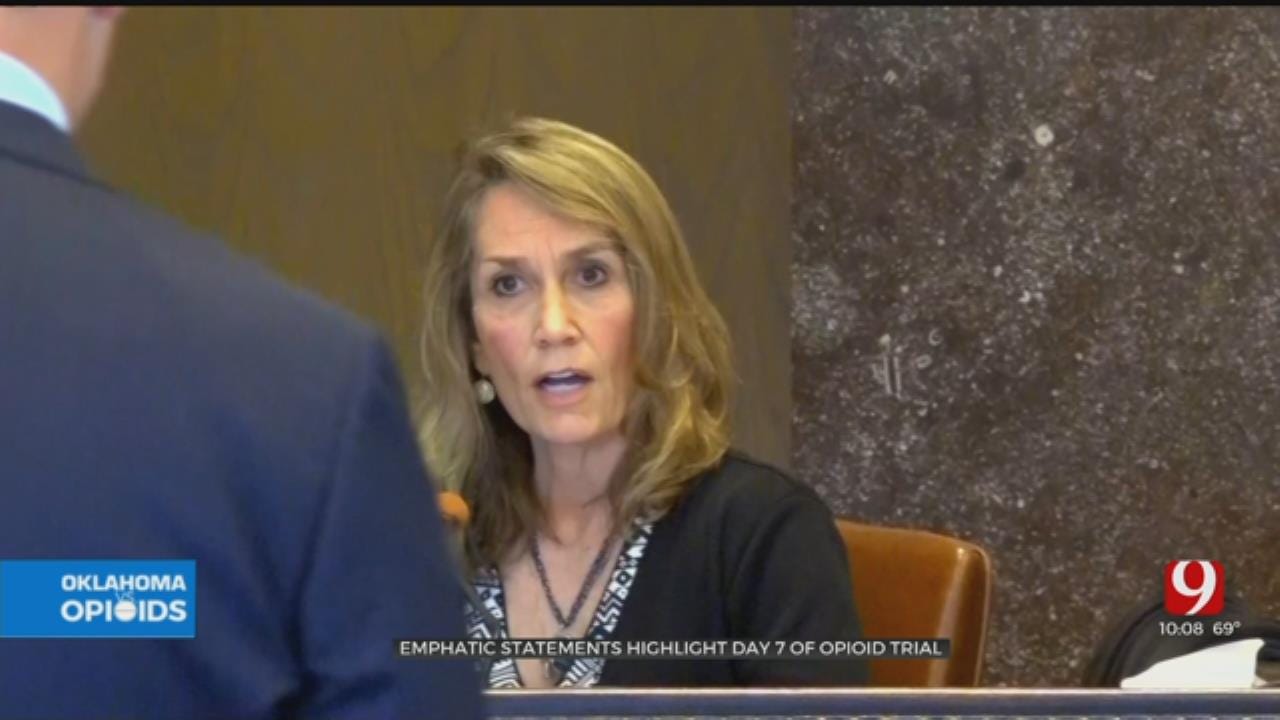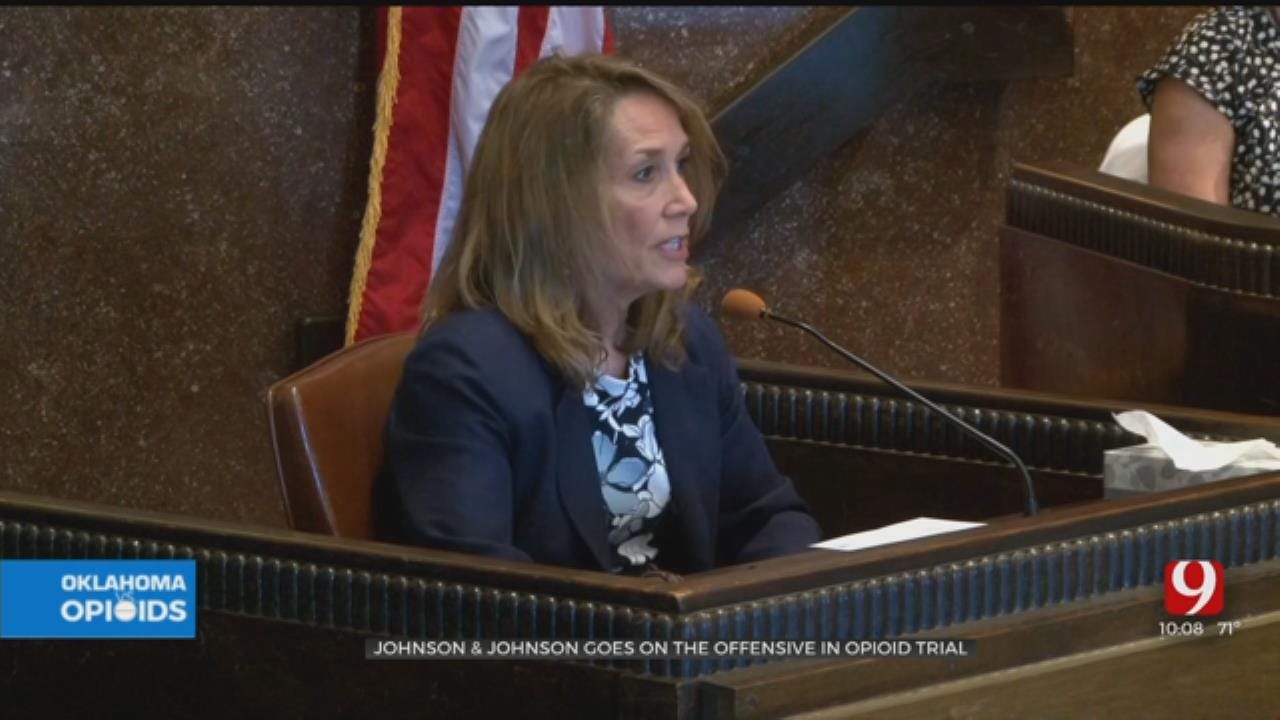Day 7: Johnson & Johnson's Corporate Witness Faces Both Friendly And Hostile Examination
Day seven of the state opioid trial proved to be a day of emphatic statements, both for the state and for the drugmaker accused of causing Oklahoma's opioid crisis. Wednesday also marked the end of testimony for Johnson & Johnson's corporate witness, KimbWednesday, June 5th 2019, 9:40 pm
Day seven of the state opioid trial proved to be a day of emphatic statements, both for the state and for the drugmaker accused of causing Oklahoma's opioid crisis.
Wednesday also marked the end of testimony for Johnson & Johnson's corporate witness, Kimberly Deem-Eshelman, who first took the stand last week on the second day of trial. Deem-Eshelman, a regional business director for subsidiary Jannsen Pharmaceuticals, has faced friendly examination, and also very hostile examination.
She encountered both on Wednesday.
"So, if someone wanted to go out on the courthouse steps here and tell people that this program marketed to youth, what would you say?" asked Larry Ottaway, Oklahoma counsel for Johnson & Johnson.
Deem-Eshelman: "It did not."
Reckless and irresponsible marketing of its opioids is one of the allegations being made by the state and which the defendants, Johnson & Johnson and Jannsen, began trying to counter, once their attorneys had the chance to cross-examine Deem-Eshelman.
In this specific instance, Ottaway was referring to a program that Jannsen put together in 2011 to get doctors and other 'Key Opinion Leaders' to brainstorm pain management issues. The Imagine the Possibilities Pain Coalition (IPPC) met four times and, internal documents show, discussed possible efforts to target opioid education efforts at youth.
In the end, Deem-Eshelmen testified, the only public outreach that came from the IPPC's work was related to pain management for returning veterans.
The defense maintains that the company has zero culpability in Oklahoma's opioid crisis, in part because its products -- Duragesic and Nucynta/Nucynta ER -- represent "a negligible share of opioid medications prescribed in Oklahoma and were not significantly abused, misused, or diverted," according to a company statement.
What's more, company representatives say, they have abided by all FDA regulations and gone above and beyond to educate doctors so they could make informed treatment decisions.
"I believe that Jannsen is an incredible organization," Deem-Eshelman testified. "I think that we practice with the highest integrity."
Deem-Eshelman said Jannsen's corporate credo -- being responsible first to doctors, nurses, mothers, father, and all others who use their products -- represents "the fabric of our organization," and says each pharmaceutical they develop is an attempt to improve people's lives.
Ottaway: "Do you believe that [Duragesic and Nucynta] were unique products?"
Deem-Eshelman: "Yes."
Ottaway: "Do you believe they brought value to patients and physicians who needed them?"
Deem-Eshelman: "I do."
But on re-direct, the state resumed its attacks, even seizing on the image of a lion from one of the company's own marketing brochures.
"You all let this lion out of the cage when you started marketing [Duragesic] broadly for non-malignant cancer pain," said attorney Brad Beckworth, "and we've been trying to outrun it ever since. True?"
Mr. Ottaway objected to the question and Judge Thad Balkman sustained the objection.
Still, Beckworth plowed ahead and restated the state's position that the defendant, contrary to the responsibility cited in its credo, helped create the worst man-made public health crisis in Oklahoma's history.
When Deem-Eshelman said she did not believe her company had done that, Beckworth followed, "Then there's one thing worse than causing an opioid crisis, isn't there?"
Deem-Eshelman: "What?"
Beckworth: "To cut and run, and take your money and not spend a single dime in this state to help us clean it up, right?"
Deem-Eshelman: "I don't believe that."
For its next witness, the state called a pain management expert from Kentucky, Dr. Danesh Mazloomdoost. His testimony on the pitfalls of opioids and their marketing campaigns will continue Thursday morning.
More Like This
June 5th, 2019
November 13th, 2024
October 28th, 2024
Top Headlines
March 29th, 2025
March 29th, 2025
March 29th, 2025














